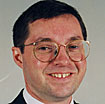Not only for Reformation Day worship, but for every Sunday, it behooves preachers to remember Luther’s instruction about the purpose of worship, outlined in his sermon preached at the consecration of the castle church in Torgau in 1544.
There he called upon the congregation to join him in the consecration “in order that the purpose of this new house may be this: that nothing else may happen in it except that our dear Lord himself may speak to us through his holy word and that we respond to him through prayer and praise.” Nothing is sacred unless the preached word makes it so. In evangelical worship, the preacher delivers the two words of law and gospel, and the people respond in faith. Such preaching in this context of worship lets the word run its full course, sidelining the “people’s work,” bringing an end to the self-secure but offering sheer delight to sinners, who can only then wish to “thank and praise, serve and obey” God. This truth is interpreted by German theologian Oswald Bayer: “even as the response of the church, faith remains God’s work.”1
The word of God is not only audible, through the voice of a preacher, but also embodied, as confessed in Article Five of the Augsburg Confession. The gift-word of the promise comes tangibly and physically, deep in our flesh, for the comfort of our consciences and kindling both love for God and neighbor. Bayer also helps us understand this physical dimension of the word in his interpretation of the Lord’s Supper: “First, the social aspect of communal eating and drinking which is constitutive; this of course includes the natural and the cultural dimension. However, for this meal to be the new covenant, the renewal of creation, the final community between God and humanity along with all creatures, this real, present, physical event that can be experienced and even seen, must be accompanied by the word of Jesus Christ by which he gives us his body and blood according to his promise.” And, in follow up, Bayer notes that “this meal highlights the mutuality of the word and the body, where both work in a way that has at once anthropological, Christological, ecclesiological, and eschatological dimensions.”2
Reformation Sunday worship will seek especially to honor the truth that our very ability to worship and thank God is solely the result of God’s good gift of grace to sinners. That said, there is also a confessional (and even missional) dimension to such gospel-inspired faith. Following the Reformers’ experience of opposition to evangelical faith from both the late medieval ecclesiastical hierarchy and the political hierarchies with which it was in league, evangelical confession involves an agreement with God’s truth as it should be professed before a world to which it stands opposed and which likewise opposes it, a world that insists on self-righteousness as opposed to God’s righteousness, and an active life before God (coram deo) as opposed to a receptive life before God. Our agency in the world (coram mundo) grows from our reception of God’s forgiveness and grace, like good fruit coming from a good tree.
With these general truths in mind, it is more important for Reformation Sunday worship that God’s good gifts actually be delivered in the proclamation and worship “in truth and purity” rather than didactically informing a congregation about these gifts. No doubt a didactic component can be helpful in preaching and even worship, given that most young people today will correct one who says “Martin Luther” with “you mean, Martin Luther King, Jr.” In spite of the importance of teaching about the significance of Reformation Sunday and Protestant teachings, one wants to make sure that the goods (i. e., forgiveness of sins, life, and salvation) are actually delivered in worship. Article four of the Augsburg Confession, dealing with the justification of sinners, hearkens to Article Six, the office of ministry that delivers forgiveness. For that very reason, one will wish to begin worship not with the service of “Thanksgiving for Baptism” but with the service of “Confession and Forgiveness.”
For those who wish to accentuate a teaching component that ties Reformation Day worship to the actual Reformers, one might wish to follow the Deutsche Messe of Luther in which hymns are substituted for the invariant parts of the worship service. One would replace the Kyrie with the hymn “Kyrie! God, Father” (ELW #409); the Gloria would be replaced with “All Glory Be to God on High” (ELW #410); the Creed with the hymn “We All believe in One True God” (ELW #411), or with other suitable hymns for each of the other invariant parts of the liturgy.
In that regard, one will insist that the hymns chosen for the day themselves give forgiveness and grace, such as “Chief of Sinners though I Be” (ELW #609), “Just as I Am” (ELW #592), or hymns of confession, such as “God’s Word Is our Great Heritage” (ELW #509), “Lord Keep Us Steadfast in Your Word” (ELW #517), and of course “A Mighty Fortress” (ELW #503-505), in which it is customary for people to stand.
If we wish to accentuate the theology of the Reformers for this Sunday, we need to keep in mind that the Lord’s Supper should center in Luther’s metaphor of “testament,” in which God’s new life is given through the death of the testator, Jesus Christ, and received in faith as we receive Christ’s body and blood with the bread and wine. Here another teaching moment is called for in that the expression “new testament” actually comes from Luther’s teaching. The words of institution should not only be proclaimed instead of prayed, but also named as new “testament” in Christ’s blood, since new “covenant” can leave a reciprocal or bilateral impression.
A children’s sermon, if one is offered, might include a “Wittenberg Door,” made of flannel board or cardboard, providing an opportunity for children to “nail”–or tape–95 theses, provided that this apocryphal story is properly explained and that some of the theses are actually read and/or interpreted. Another, children’s sermon might focus on Christ as liberator from sin and death: breaking paper chain links binding the arms of a child might well symbolize this.
At the 300th anniversary of the Reformation, in 1817, it was common for Protestant academics to herald Enlightenment views of human autonomy as the natural outgrowth of Luther’s thinking. The quest for human freedom is, no doubt, an obligation which we have for our neighbor. However, the dissenting voice of Pastor Claus Harms of Kiel, who offered his own 95 theses for his time, took Enlightenment thinking to task as a form of self-righteousness.
Our own time is not so different from that of Claus Harms. North Americans need to hear a word of judgment, but also, and so crucially, a word of grace. Our very worship grows from that grace and lives from the proclaimed word, which in Jesus’ name, delivers new life.
1Oswald Bayer, Theology the Lutheran Way (trans. J. Silcock and M. Mattes; Grand Rapids, Mich.: Eerdmans, 2007), 88.
2Ibid., 89.

